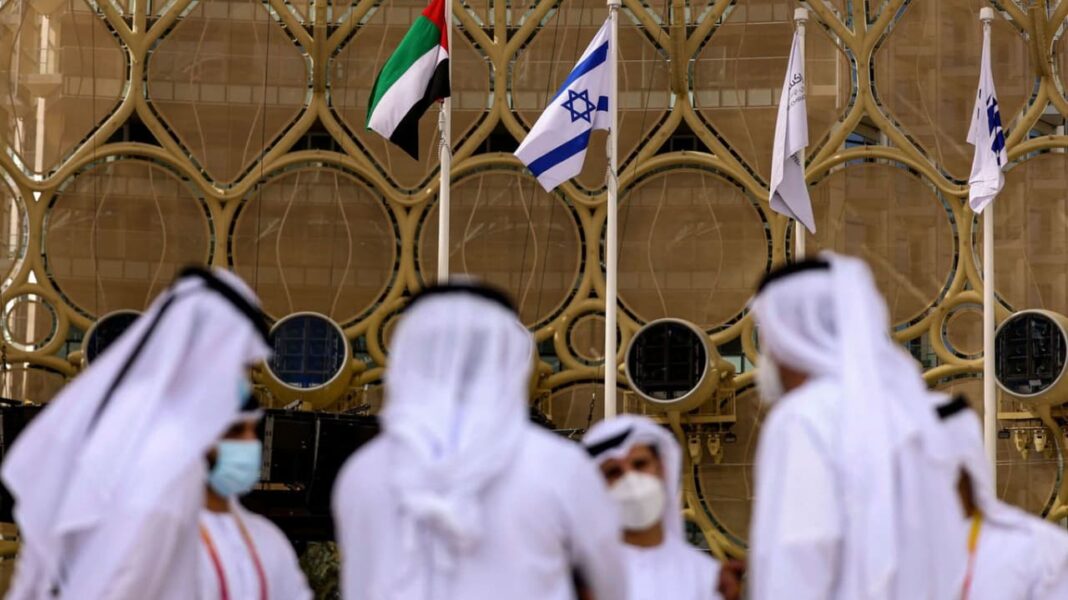The unprecedented missile and drone attacks by Yemeni troops have rattled the UAE and led it to look for ways to bolster its defenses against future strikes.
Israel and the UAE had a back-channel defense and intelligence relationship for more than two decades that only became more public after the signing of the Abraham Accords in 2020.
The Yemen’s Houthis have launched at least three recent attacks targeting the UAE, which is a member of the Saudi-led coalition that has waged an aerial campaign against Yemen since 2015.
A Houthi military spokesperson this week threatened to continue the attacks on the Persian Gulf country, linking them to the ties between the UAE and Israel.
Following the first attack, Israeli Prime Minister Naftali Bennett told Abu Dhabi Crown Prince Mohammed bin Zayed (MBZ) in a letter that Israel was ready to provide intelligence and defense assistance.
In Abu Dhabi last week, Israeli officials met with Emirati military officials, who said the Persian Gulf country needed assistance with its missile defense and counter-drone technology, according to Israeli officials.
The officials tell me one critical field that was discussed was detection and early warning.
Emirati officials declined to comment.
Emirati ambassador to Washington Yousef Al Otaiba and ambassador to the UN Lana Nusseibeh wrote in a Wall Street Journal op-ed on Monday that the Joe Biden administration and other world powers should deploy sanctions against the Houthis to pressure them to agree to a ceasefire.
Secretary of Defense Lloyd Austin spoke to MBZ and stressed that Washington will continue to provide early warning intelligence and collaborate on air defense, the Pentagon said.
Austin told MBZ the U.S. will send the Navy guided-missile destroyer USS Cole to the UAE and will deploy F-18 and F-22 fighter jets in the UAE.
Israel’s Ministry of Defense and national security agencies are expected to discuss the Emirati requests in the coming days, Israeli officials told Axios.
The officials say they want to help the UAE as much as they can while not jeopardizing sensitive technology that Israel doesn’t want shared.
“We will be happy to help whoever is our friend as much as we can, and if the Emiratis want, we will be happy to cooperate. It is their decision,” Israeli Defense Minister Benny Gantz stated on Monday.
Israeli Foreign Minister Yair Lapid has announced Israel should formally designate the Houthis as a terror organization.
Gen. Frank McKenzie, the outgoing commander of U.S. Central Command, is also expected to visit the UAE next week for further discussion on bolstering defense cooperation, a source with direct knowledge of the issue added.
On Thursday, the UAE announced it intercepted three drones that entered its airspace over unpopulated areas early on Wednesday in the fourth such attack on the Persian Gulf commercial and tourism hub in the past few weeks.
The Houthis have not yet announced a new operation and Wednesday’s drones attack was claimed by a little-known group calling itself the “True Promise Brigades”, according to U.S.-based SITE Intelligence Group. The group’s only other claim was in January 2021, when it said it launched a drone at Saudi Arabia.
The UAE Defense Ministry said it was “ready to deal with any threats” and was taking “all necessary measures” to protect the country which prizes its reputation as a safe business haven.
Saudi Arabia and its allies launched a war against the Arab world’s most impoverished nation in March 2015. The war has been seeking to restore power in Yemen to Riyadh’s favorite officials.
The death toll of the war, now in its seventh year, will reach an estimated 377,000 by the end of 2021, according to a recent report from the UN’s Development Programme.
The fighting has seen some 80 percent of the population, or 24 million people, relying on aid and assistance, including 14.3 million who are in acute need.
